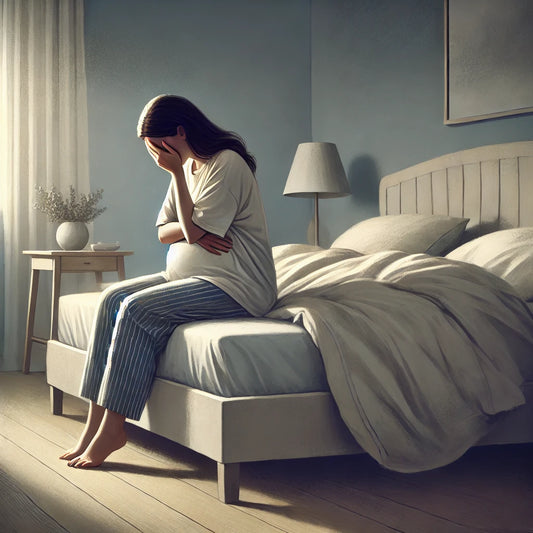The world of stiff penises: all about erections, how they happen, and what to do if they don't
An erection is a natural phenomenon that almost all men experience. Although it's a common topic, there are many questions about why it happens, how it works, and what you can do if an erection doesn't occur. In this blog, we dive into the world of erections and explain everything you need to know.
What is an erection and why is it called that?
The word "erection" comes from the Latin word "erectio," which means "to stand upright" or "to raise." An erection refers to the state in which the penis becomes stiff and enlarged due to an increase in blood flow to the erectile tissue. This tissue consists of spongy structures that fill with blood when a man is sexually aroused.
How do you get an erection?
An erection results from a complex interaction of psychological, neurological, hormonal, and vascular (blood vessel) factors. Here is a step-by-step explanation of how an erection occurs:
-
Sexual arousal : This can be visual, tactile (touch), fantasy, or a combination of factors that sexually arouse the man.
-
Signals from the brain : The brain sends signals via nerves to the penis, releasing nitric oxide. This molecule helps dilate the blood vessels in the penis.
-
Blood flow : The arteries in the penis expand, allowing extra blood to flow into the erectile tissue. At the same time, the veins that drain blood from the penis are compressed, keeping the blood in the penis and making it stiff.
-
Result: Erection : The result is a stiff, enlarged penis that is ready for sexual activity.
What to do if an erection doesn't happen?
Failing to get an erection, also known as erectile dysfunction (ED), can be frustrating for many men. It can occur occasionally or be a recurring problem. Here are some causes and tips on how to deal with it:
-
Physical causes : These can include cardiovascular diseases, diabetes, hormonal imbalances, obesity, or neurological disorders. Regular exercise, a healthy diet, and medical advice can help control these factors.
-
Psychological causes : Stress, anxiety, depression, and relationship problems can affect erections. Psychotherapy, relaxation techniques, and good communication with your partner can be helpful.
-
Lifestyle : Smoking, excessive alcohol use, and drugs can negatively impact erections. Adjusting these habits can help improve your erections.
-
Medication and treatments : Various medications, such as Viagra, can help achieve an erection. Always discuss this with your doctor to find the best treatment for you.
-
Consult a specialist : Visiting a urologist or sexologist can provide insights into the cause of erectile dysfunction and suggest appropriate treatments.
Conclusion
An erection is a complex yet normal bodily process that sometimes doesn't work for various reasons. If you experience erection problems, it's important to know that you are not alone and that solutions are available. Don't hesitate to seek help from a doctor or specialist.
Hopefully, you now have a better understanding of what an erection is, why it's called that, and what you can do if it doesn't work. It's a topic that should remain open for discussion, without shame.





